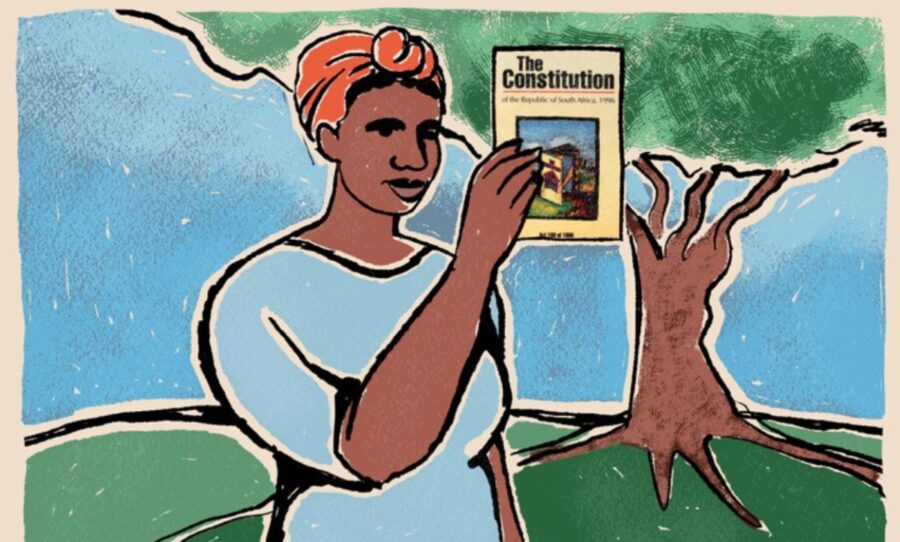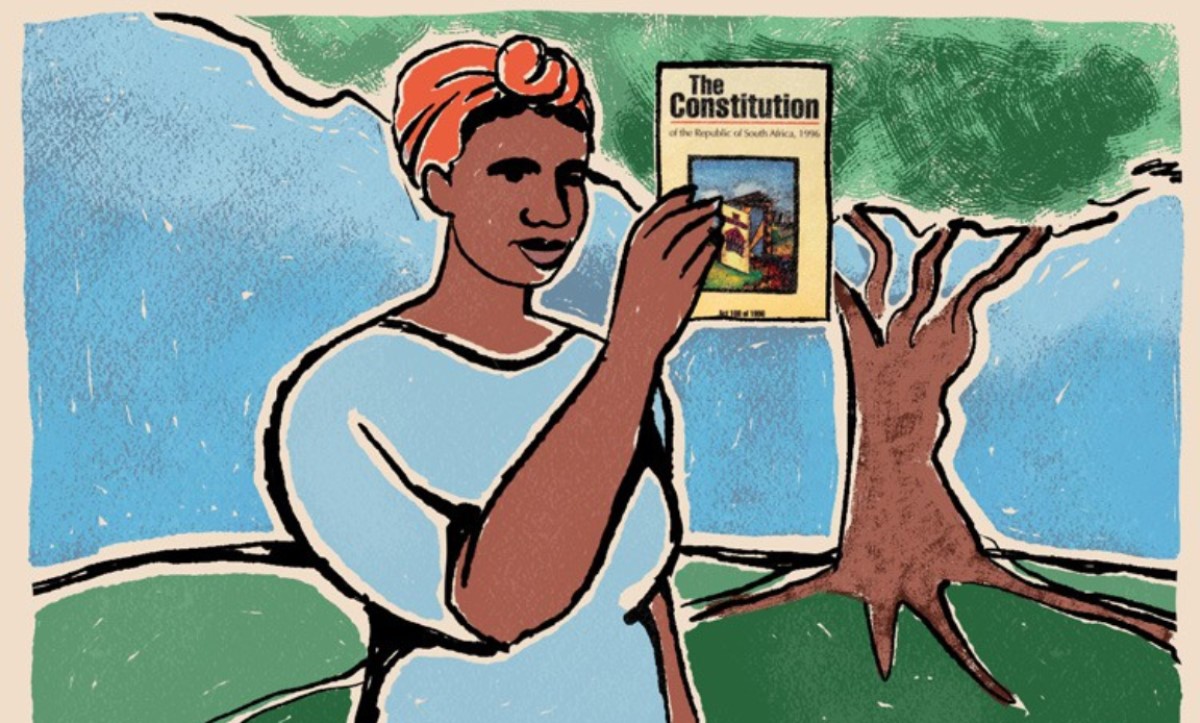
Court Rules that Woman Can Name Her Alleged Rapist in Western Cape
In what has been hailed as a landmark case, the Western Cape High Court has ruled in favour of a rape survivor, saying the man she outed as her rapist on social media five years ago had no legal right to silence her. In 2016 June Dolley-Major wrote a Facebook post in which she claimed […]

In what has been hailed as a landmark case, the Western Cape High Court has ruled in favour of a rape survivor, saying the man she outed as her rapist on social media five years ago had no legal right to silence her.
- In 2016 June Dolley-Major wrote a Facebook post in which she claimed Melvin Booysen raped her 18 years ago.
- They were both Anglican priests.
- Booysen went to court to interdict Dolley-Major from making the claim.
The judge found that Booysen had been economical with the truth, and he had not made a compelling case that he’d suffered reputational damage. She refused to interdict Dolley-Major.
Judge Elizabeth Baartman was presiding over a matter in which Anglican priest Melvin Booysen was seeking a final interdict against former fellow priest June Dolley-Major, stopping her from naming him on Facebook as the man who she alleged raped her 18 years ago.
Booysen had secured an interim interdict in an urgent application in March this year, claiming her posts were causing him humiliation and reputational damage.
Read the judgment
However, Judge Baartman has now discharged the interim interdict, ruling that it should never have been granted in the first place, because Booysen had misled the court — had been “economical with the truth” — by claiming the matter was urgent when the posts had first appeared in 2016 and it was clear that in the interim he had suffered no reputation damage.
“The posts have moved far beyond naming him as the rapist,” Judge Baartman said.
“More harm will be caused to her and the 8,000 others who have either shared their experiences or have been encouraged to speak out and seek help in respect of their own abuse.
“Considering the rape culture in South Africa, and in the circumstances of this matter, where he has already been identified in 2016, the order sought is untenable,” Judge Baartman ruled.
“Since 2016, no harm has befallen him and the posts have moved far beyond him. He is merely seeking to exert dominance over her in light of the progress in the complaint against him,” she said in reference to the fact that the Anglican Church had finally, last year, initiated an inquiry into the matter and other alleged abuses.
“Irrespective of the outcome (of that inquiry), it will be a victory for Dolley-Major and those who have supported her for 18 years,” the judge said.
According to the evidence before Judge Baartman, Booysen has been a priest since 1988.
He said he met Dolley-Major in 2002 when she was training to become a priest. He helped her settle in and they remained friends after she qualified and was appointed to a post in Cape Town.
In 2016, he said he was “shocked” when he heard that she had laid rape charges against him. He said the prosecutor had declined to prosecute him. In 2020, he learned that she had laid charges against him with the church and there was a video on Facebook in which he had been named.
This, he said in his urgent application, was damaging and humiliating. He said Dolley-Major was bound by the rules of the church which required that the matter remain confidential until the Bishop ruled otherwise.
In her answering affidavit, Dolley-Major maintained that Booysen had raped her in Makhanda in 2002 when he accompanied her to find a school for her son.
She said the church pressured her not to report the matter, ordering her to obey “the oath of Canonical obedience” and had silenced her.
In 2016, she went on a hunger strike and publicly disclosed that Booysen had raped her. Her relationship with the church became strained, she resigned and ended up living in a shelter.
In the Facebook posts, she said she was taking a stand for herself and other victims of the Anglican Church “which has for many years covered up the abuse of women and boys at the hands of its clergy”.
“Today I speak out for all Rev Melvin Booysen’s victims. There are many women out there whom he took advantage of, not just me,” she posted.
She received many messages of support.
On 24 September 2016, she wrote an open letter to Archbishop Thabo Makgoba and all clergy, accusing them of a cover-up and trying to protect “Rev Melvin”.
Judge Baartman, in her judgment, noted the submissions of The Women’s Legal Centre (WLC), which was admitted as amicus curiae (friend of the court).
It said that one in three women in South Africa are raped and the impact of silence and isolation on survivors was dire.
Statistics indicated that almost 90% of cases reported to the police were not prosecuted. And only 8% of those cases which were prosecuted resulted in a conviction.
The judge said: “The context of mass rape in South Africa, the structural impunity, the culture of silencing and the isolating in which victims suffer, renders the online publications of acts of gender-based violence and identification of perpetrators reasonable.
“I accept that Booysen has a right to have his dignity and good name protected. However, it is apparent that he has known for years that his reputation and good name were being tarnished.
“The irreparable harm that he fears, in the circumstances of this matter, is non-existent as his congregation has been discussing the issue for many years with apparently no effect on his reputation.
“The outcome of the pending inquiry (by the church ) will elicit further discussion, irrespective of the posts.”
Judge Baartman said Dolley-Major had shown that she had a defence against any future claim of defamation and the pending church proceedings did not prevent her from posting information about the process.
“Through her online speak out, Dolley-Major has gone from victim to survivor and now uses her platform to educate and support others.
“The growth in her support base is an indication of the effect of the South African rape culture and destruction it wreaks in the lives of women, as well as the need for safe spaces to talk without being judged.”
The judge said Booysen had disclosed minimum information when he first approached the court on an urgent basis.
“He was economical with the truth and unrepentant … that behaviour warrants a show of this court’s displeasure,” she said, ordering that he pay punitive costs.
The WLC welcomed the judgement. “This landmark case highlights the tensions that exist when alleged perpetrators approach the courts to gag women and prevent them from exercising their right to freedom of expression and speaking their truth,” it said.
“The legal counsel for Booysen stated that she should not have mentioned him by name and that she should have described him as her alleged rapist instead of stating that he raped her. The court found this proposition – that alleged rapists should have editorial rights over an alleged victim – to be an astounding one.”
